Meditation and mindfulness at our Centres of Wellbeing
To celebrate World Meditation Day, we are highlighting meditation and mindfulness practices that help support the wellbeing of our blind veterans.
Stress affects everyone, but it can be particularly challenging for those living with, or adapting to sight loss. At our Centres of Wellbeing in Rustington and Llandudno, we understand this and offer specialised sessions to help blind veterans manage stress and overcome the challenges associated with vision impairment.
Recently, we had the pleasure of hosting Babaji Santandas, also known as Brian, an ordained Hindu monk and blind veteran. He was introduced to meditation almost 40 years ago after a life-changing accident. He found this to be immensely helpful for his wellbeing and rehabilitation. Brian now teaches meditation techniques all over the world, sharing his expertise in places like Canada and Mauritius.
Managing stress
We asked Brian for his expert take on managing stress and staying positive:
“Meditation and yoga is so important. Yoga breathing exercises help you find your equilibrium in your body and your mind. Feel the meditation, the breathing and the yoga – it helps you to focus inside."
“Forget everything else, and just focus on your breathing and try to look at the light inside yourself, and tell yourself ‘You have a beautiful life inside, and let the light shine out, feel the deep peace, the deep inner harmony and inner balance."
“You have a wonderful universal energy inside you, feel it flowing through your body, feel it in your breath. Concentrate on your breath, let your breath spread light and love.”
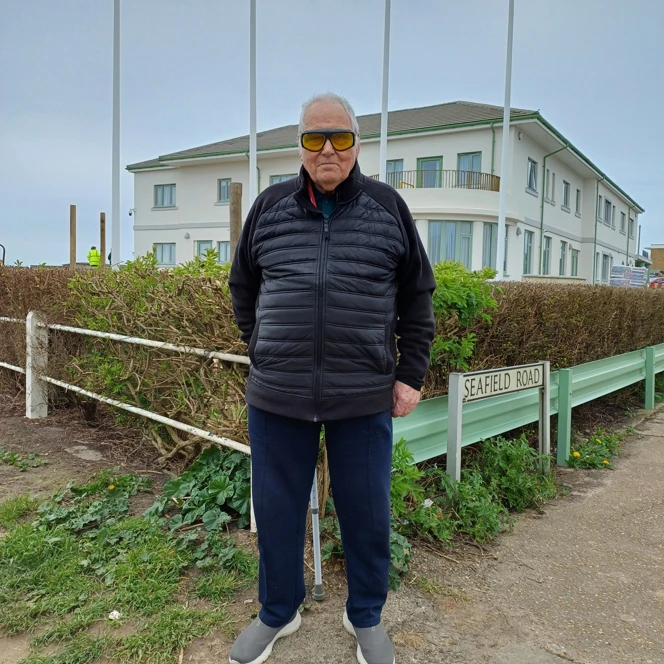
Alternate nostril breathing
Brian highly recommends yoga to assist with breathing exercises, adding that there are many exercises that can be practiced in a chair, for those with reduced mobility.
One in particular is an alternative nostril breathing technique that should be practiced consistently each morning for at least 20 minutes. This will focus the mind on finding inner balance, positivity, and calm and will help reduce any stress or anxiety.
- Close your eyes.
- Place index and middle fingers over your left nostril.
- Slowly inhale.
- When you are ready to exhale, gently place your thumb over your right nostril, releasing your fingers over your left nostril.
- Slowly exhale.
- Repeat for 20 minutes daily.
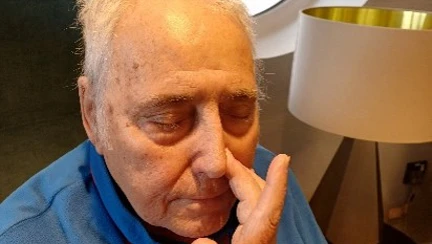
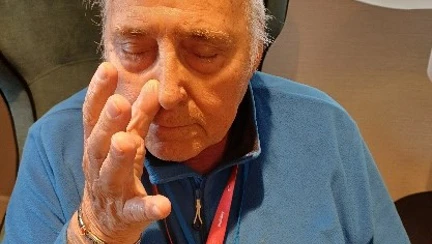
Supporting our blind veterans' wellbeing
Our Llandudno Centre of Wellbeing
At the heart of everything we do at the Llandudno Centre of Wellbeing is the five ways to wellbeing principle: Connect, Be Active, Take Notice, Keep Learning, Give.
These strategies are aimed at improving the mental health and wellbeing of our blind veterans, volunteers and staff and are incorporated into all of our activities.
During rehabilitation and holiday stays in Llandudno, blind veterans can participate in a range of wellbeing activities alongside meditation and breathing practices:
- Qigong. Pronounced “chee-gong,” this traditional Chinese practice consists of mindful, meditative movements. The combination of slow movements, postures, and stretches co-ordinate the breath, mind, and body, and is a mindful practice that blind veterans can learn at the Centre and continue at home.
- Hand bath therapy. A relaxing and muscle-soothing heat treatment, a wax hand bath warms the connective tissue of the joints and can reduce joint pain and stiffness, improve blood circulation as well as moisturising and softening the skin.
- Sound bath. This ancient practice uses therapeutic sound waves that can benefit both physical and mental health. Using a variety of instruments, including Himalayan singing bowls, the resonant frequencies of the instruments or voice can reduce stress and anxiety, improve sleep quality and enhance mental clarity and focus.
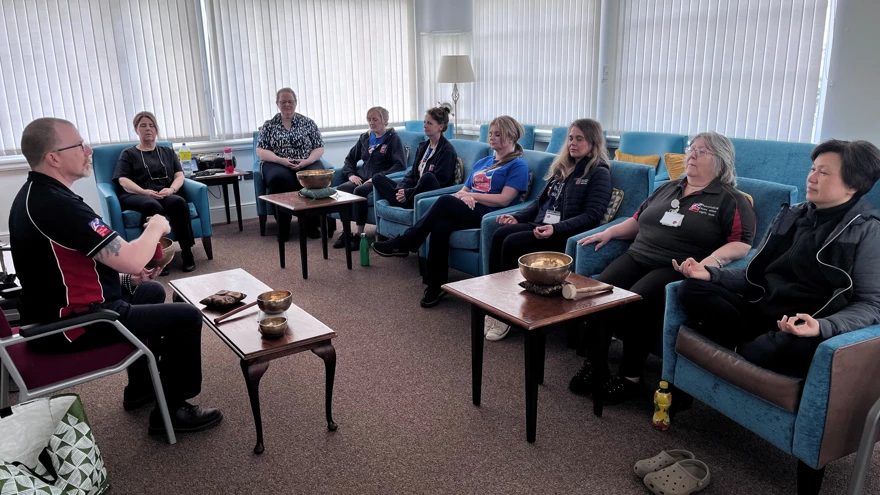
Our Rustington Centre of Wellbeing
The Rustington Centre runs several wellbeing sessions each that helps manage stress through a variety of practices and methods to promote general wellbeing. These include:
- Dance and movement. To encourage our blind veterans to consider what courage means to them personally, music is played to facilitate this and to inspire individuals to express their different emotions.
- Enhancing the power of the mind. This is introduced through a simple exercise of using an imaginary lemon in the mouth and focusing the mind on this concept. A focused mind has the power to make us imagine any taste in our mouths, often resulting in feeling our mouth salivate. This demonstrates how the mind and a physical response is connected.
- Breathing. As explained by blind veteran Brian, breathing has a crucial role in helping with our anxieties and generally improving our wellbeing. We introduce this through becoming aware of the colder air coming into our bodies, our lungs inflating in the trunk of our body, and then cupping the mouth to feel the warm air coming out. This is practiced in counting sets of 10.
- Practicing mindfulness when eating. Food can be a helpful tool to introduce meditation, try noticing the smell of your food, the different textures and the differing flavours as you chew each mouthful.
Read more
A Sandhurst celebration
16 Feb 2026
A group of blind veterans joined charity corporate partners at a special event held at RMA Sandhurst.

‘Every Penny Counts’ update
5 Feb 2026
A blind veteran has raised over £1,000 in 18 months by collecting pennies in an old milk bottle.
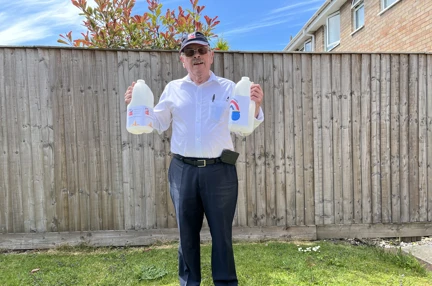
200 miles a month resolution
3 Feb 2026
A blind veteran has set himself a resolution in 2026 to run or walk 200 miles a month to support our charity.
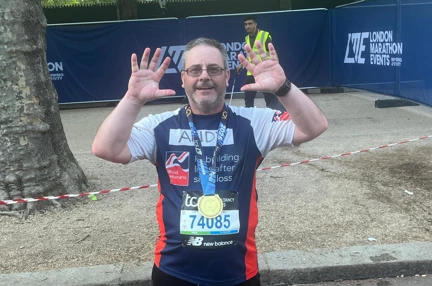
Sign up for email updates
We would love to keep you updated about our activities, services and ways to support us.
You can change your contact preferences at any time by calling us on 0300 111 2233 or emailing us. See our privacy policy for more details.